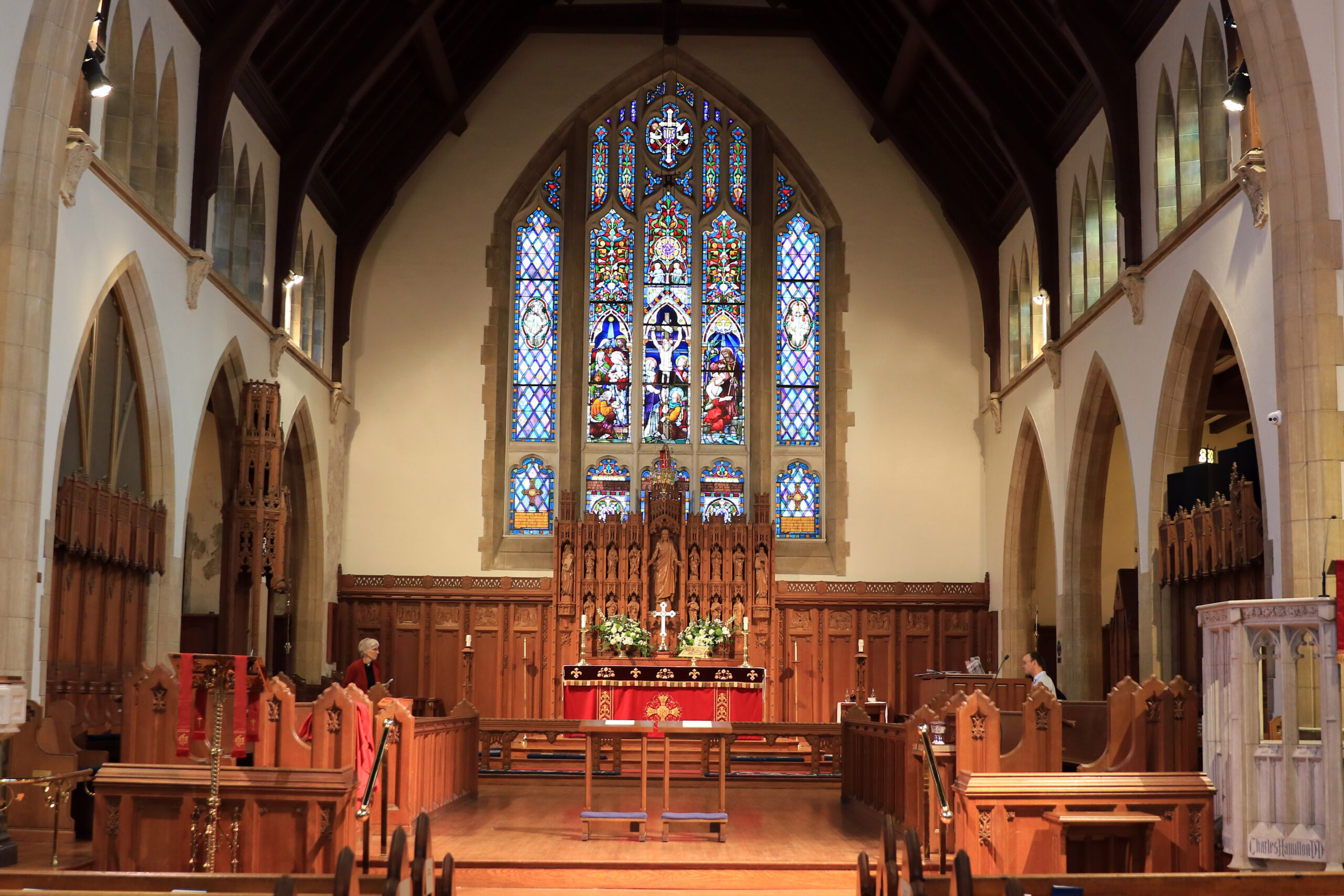Our Vast Region
The Anglican Diocese of Ottawa (ADO) encompasses a vast, 46,620-kilometre region. It spans across eastern Ontario and western Quebec, including the vibrant city of Ottawa, Canada. Our parishes respectfully serve as a resource for everyone, in over 50 local communities, in diverse villages, towns, and smaller cities. You will find that our commitment to social connection, spiritual nourishment, social justice, and compassionate service resonates throughout the region.
While the descriptions of our life, our people, and our ministries offered on this website are principally in English, we are very thankful to have a French-speaking congregation in St. Alban’s near the University of Ottawa and an Inuktitut-speaking congregation at St. Margaret’s in Vanier.
What We Do
Ascension House is our central office. It is near Asinabka (Chaudière) Falls where all our ministry efforts are coordinated and supported. In addition to our parishes, ADO has major community ministries that offer:
- supportive and emergency housing for women
- day programs for individuals facing poverty or homelessness
- refugee sponsorship services, and;
- a counselling centre
We consciously engage in the work of reconciliation with Indigenous Peoples through our All My Relations Circle. Our youth internship program enables young adults to discover their unique gifts. These and other initiatives reinforce our dedication to making a positive impact on society.
View our Programs & Partnerships View our Community MinistriesOur Commitment
The Anglican Diocese of Ottawa (ADO) is one of 30 dioceses within the Anglican Church of Canada, which is part of the worldwide Anglican Communion. As you explore our website, you will discover the rich mosaic of our history, our ongoing ministries, and our shared commitment to serving the common good and building compassionate and inclusive communities.
Please feel free to browse through our pages to learn more about our diocese, our parishes, and the multitude of ways we strive to serve and uplift our communities. All are welcome to join in on our collective journey of faith and service.
What We Believe
Anglican theology is based on three principles:
Source: Bays, Patricia (2012). This Anglican Church of Ours pp. 69-70
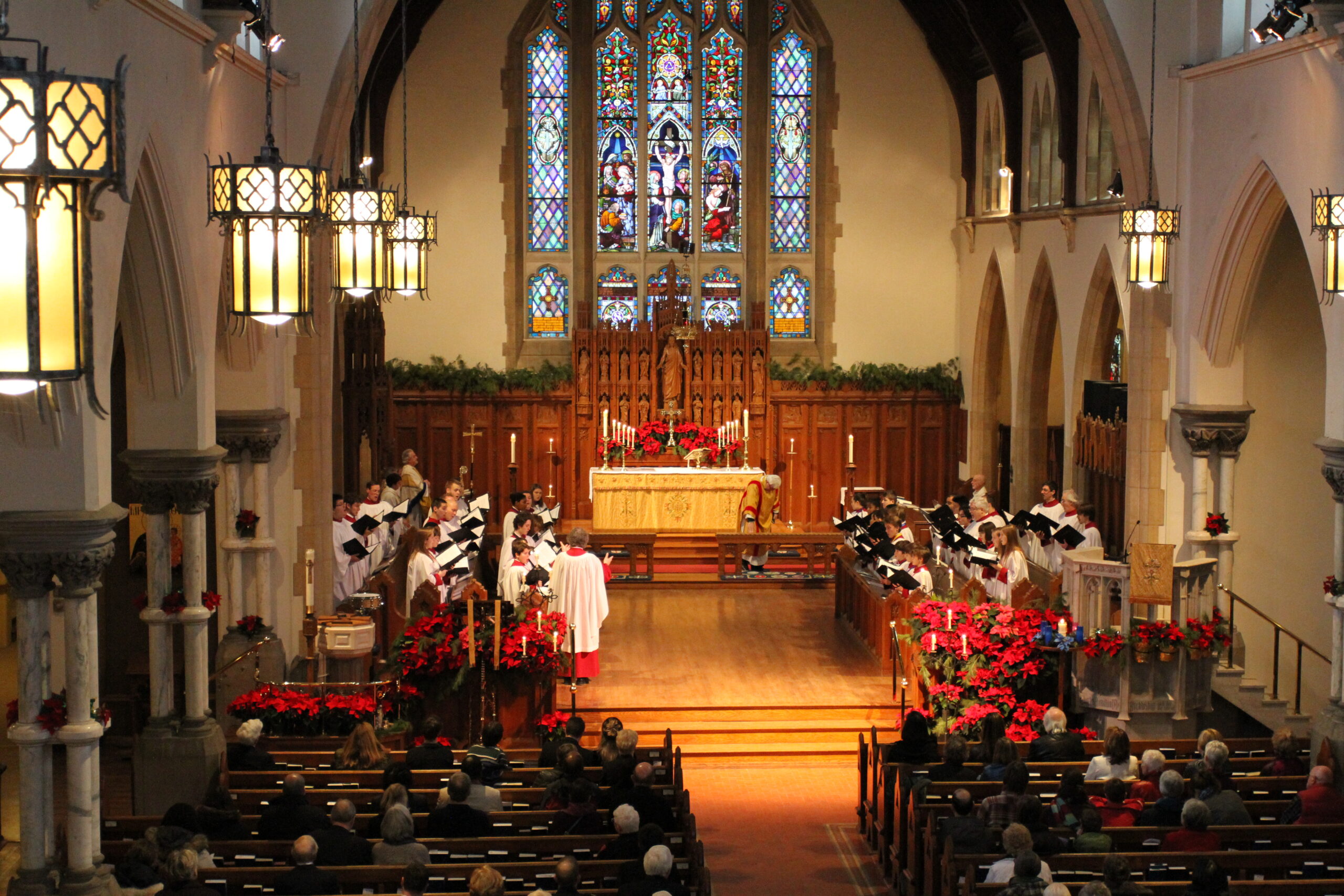
Scripture
The Bible
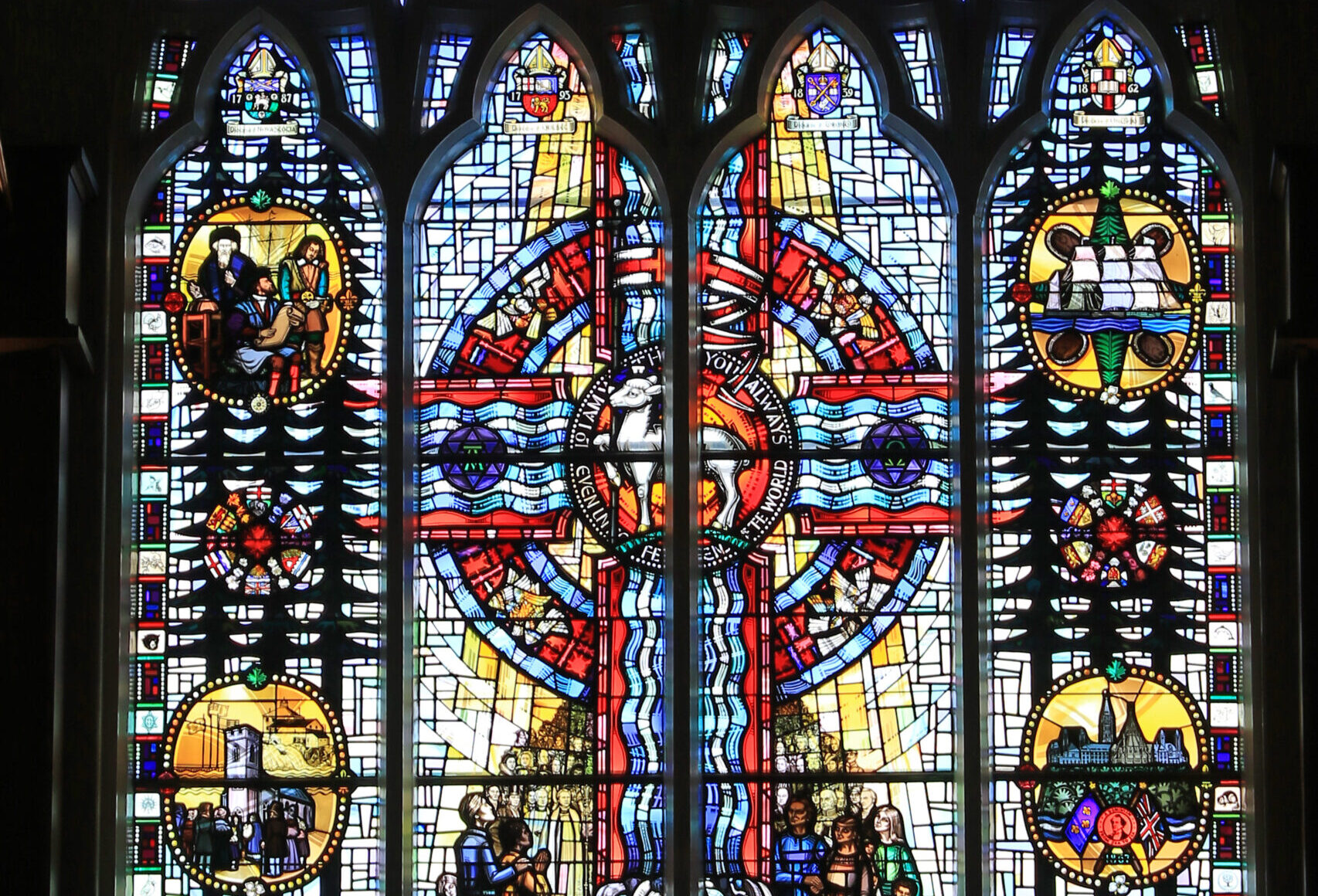
Tradition
The collective wisdom of the church received and taught over centuries

Reason
We believe God has given us the gifts of reason and balanced judgment and that we are expected to use these gifts to understand and act upon God’s call.

35For I was hungry and you gave me something to eat, I was thirsty and you gave me something to drink, I was a stranger and you invited me in, 36I needed clothes and you clothed me, I was sick and you looked after me, I was in prison and you came to visit me.’ 37“Then the righteous will answer him, ‘Lord, when did we see you hungry and feed you, or thirsty and give you something to drink? 38When did we see you a stranger and invite you in, or needing clothes and clothe you? 39When did we see you sick or in prison and go to visit you?’ 40“The King will reply, ‘Truly I tell you, whatever you did for one of the least of these brothers and sisters of mine, you did for me.’
–Matthew 25:35-40
Worship
Every church and parish possess a distinct character, ranging from formal to casual, and offering diverse styles of music. We extend a warm invitation to everyone, encouraging you to explore the churches in your local area and discover the one that resonates with your spirit.
All are welcome to embark on this journey of finding a spiritual home that feels just right for you.
Anglican church services encompass several common elements:
Holds significant importance in our collective worship. Our services draw from a rich tradition of set prayers, found in either the Book of Common Prayer, based on 16th-century rites, or the more modern Book of Alternative Services (1985).
Known as the Lord’s Supper or Communion, is a central component of many Sunday services. Additionally, Anglican congregations gather for morning and evening prayer, as well as services throughout the week.
Typically includes the gathering of the community, listening to and reflecting on Scriptures, bringing prayers for the world and community to God, sharing the holy meal of bread and wine, and going forth into the mission of daily life.
Advent, Christmas, Epiphany, Lent, Easter, Season after Pentecost, and Season of Creation. We follow a lectionary, a predetermined list of Bible readings for the year.
Commonly held in church buildings, Anglicans may also gather in long-term care facilities, senior residences, school gyms, or community centres.
Pray
Prayer holds a central role in the spiritual life of Christians, serving as a means of connecting and communicating with God. It encapsulates the essence of our relationship with the divine.
– Anglican Fellowship of Prayer
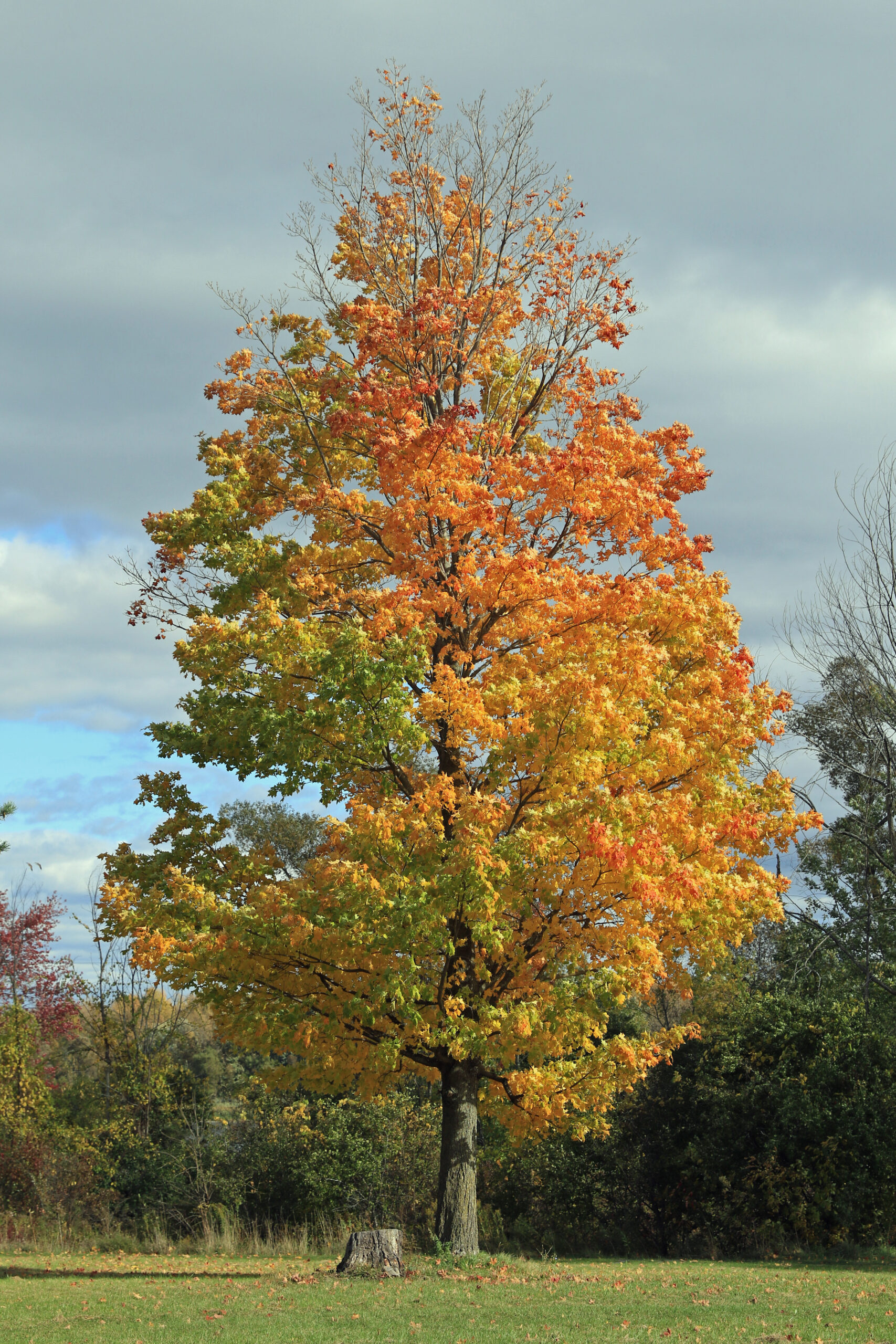
Praying together
When we gather for worship, we pray together.
We use many different prayers, but one that you will hear often is the one Jesus taught his disciples:
Our Father who is in heaven
Hallowed be your name,
Your kingdom come, your will be done,
On Earth as it is in heaven
Give us this day our daily bread,
And forgive us our sins as we forgive those who sin against us.
Lead us not into temptation.
But deliver us from evil,
For yours in the kingdom, the power and the glory
Forever and ever,
Amen.
At the end of services, you will often hear this prayer:
Glory to God,
Whose power working in us,
Can do infinitely more than we can ask or imagine.
Glory to God, from generation to generation,
In the church and in Jesus Christ
Forever and ever, Amen.
Source: Ephesians
Personal Prayer
The Anglican Fellowship of Prayer offers a useful resource on different types of prayer including:
- Christian meditation
- centering prayer
- healing prayer
- prayer while moving
- praying for others
- music & prayer
- prayer & art
- Taizé
- pastoral care and prayer
- prayer labyrinths
- Stations of the Cross
Thoughts from the Bishop
Prayer
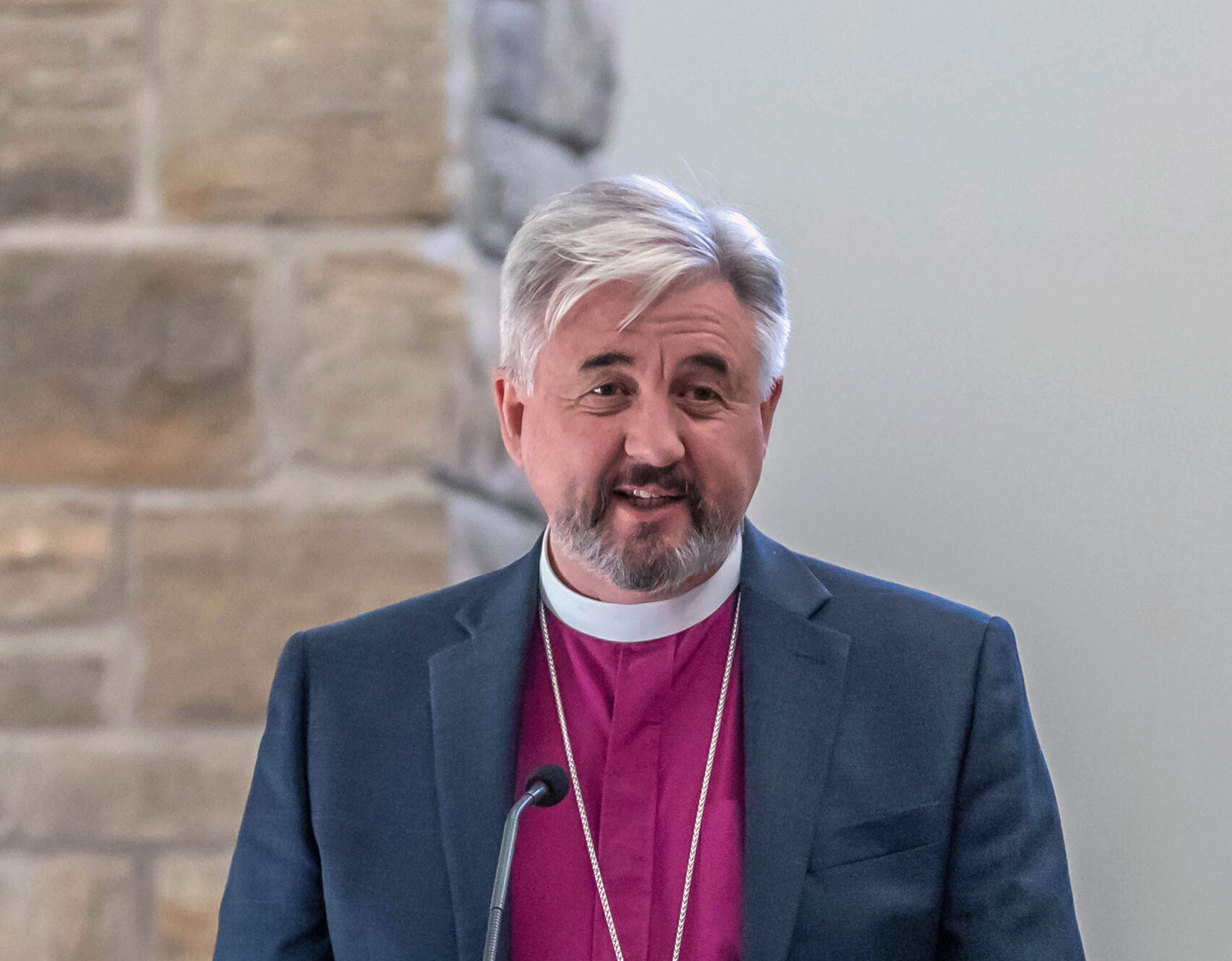
Bishop Shane Parker has shared some thoughts on personal prayer:
Praying and listening for God’s answer
“Being in a place where you can look out and far away in all four directions has a centring effect: you feel smaller, in a good way, and the thoughts you carry become more like prayers, and as the prayers flow out and away from you, a kind of holy silence replaces them, and you are able to listen to the wisdom of the Spirit.
My journey has taught me that if you understand personal prayer to be about letting your thoughts be lifted up and away from you so that you are finally silent, you are on the right track. Jesus teaches that God will answer anyone who asks or seeks, but you cannot possibly hear the answer if your own voice is in the way. Best to pray away until there is nothing more for you to say, and then, when you can be silent, to trust that the wisdom of the Spirit is speaking, and let it be. Get up and go your way: you have been heard and answered—live it out and see what happens!
When I was a less seasoned follower of Jesus, I prayed for specific things to happen (or not happen) to people I loved, or in situations that seemed unbearable. Perplexingly, none of these things turned out the way I desperately wanted or thought they should, yet I was somehow conscious of being firmly tethered to God as they unfolded. In time, I learned to pray with deep trust, knowing that everything is held and will be resolved in Christ.
Read his complete message from the March 2022 issue of Crosstalk.”
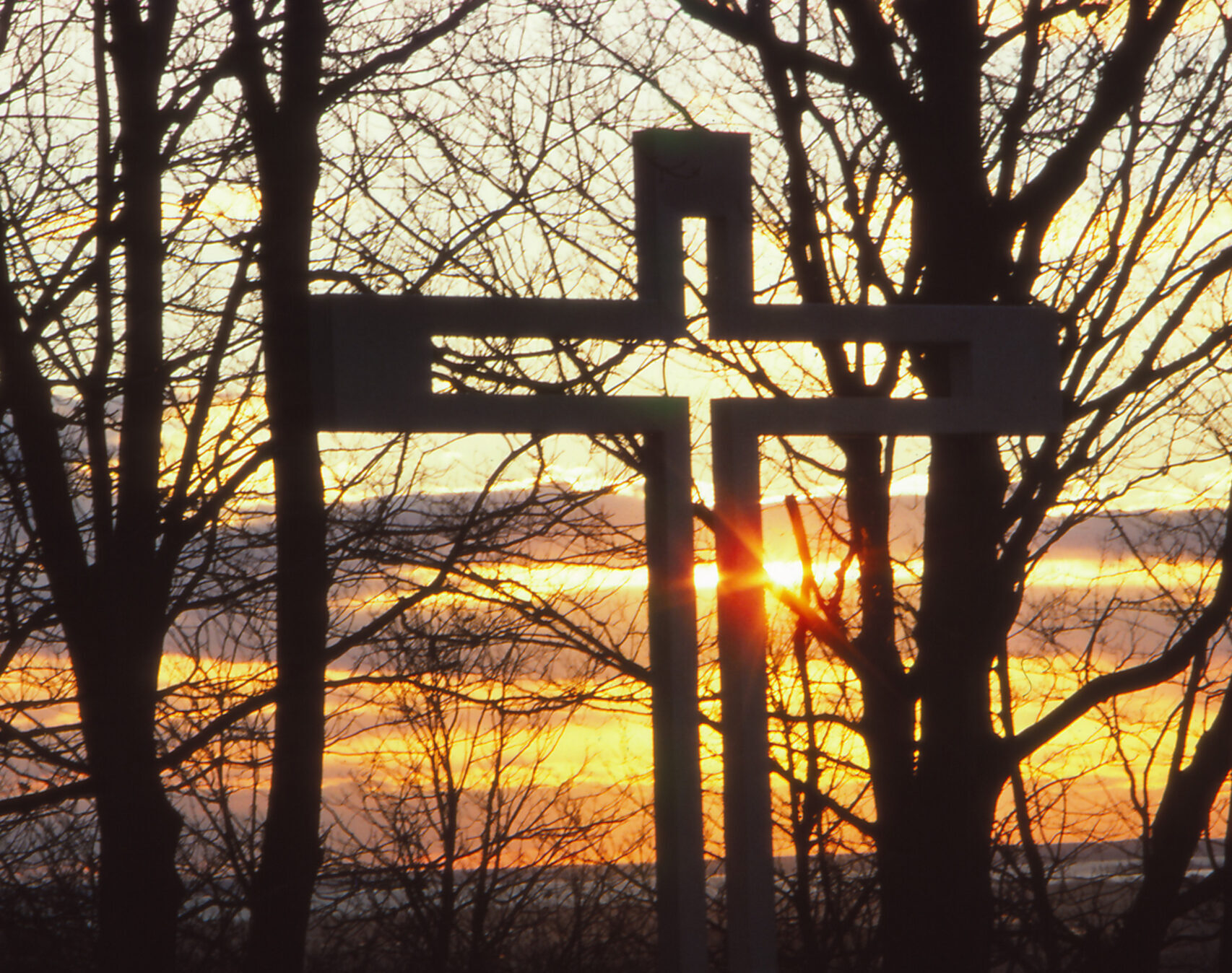
Bishop Shane Parker shared his thoughts about times when it is difficult to pray, describing a remote area of Gatineau Park that he often hikes to:
When the prayers of our hearts cannot be put into words…
“To the west of this large pond is a large, graceful, white pine, which stands alone, keeping watch over the sanctuary of the forest. Every time I return, I visit this old friend, who has silently listened to the cares of my heart over the years. I call it the Vigil Tree.
The Vigil Tree seems to know that sometimes the prayers of our hearts cannot be put into words. Some things feel too big, or complicated, or painful to express in prayer. Sometimes there is nothing to say. The Vigil Tree seems to embody the words of Saint Paul, who taught that when we cannot pray or cannot find the words to pray, the Holy Spirit prays for us, interceding for us “with sighs too deep for words.”
Sometimes it is enough to go to a place that is familiar and safe, be it a forest, a church, a chair, or a window, and open your heart to God, wordlessly. And God, who searches your heart, will hear the prayer of the Spirit within you.
Read Bishop Shane Parker’s complete message from the January 2023 issue of ADO newspaper, Crosstalk.”
Participate
We extend a warm invitation for you to visit any of the Anglican Churches across our ADO region.
All individuals are welcome, and our clergy and church members will be delighted to hear from you and address any inquiries you may have about attendance or engagement within our community.
